#cesar chavez day
Photo
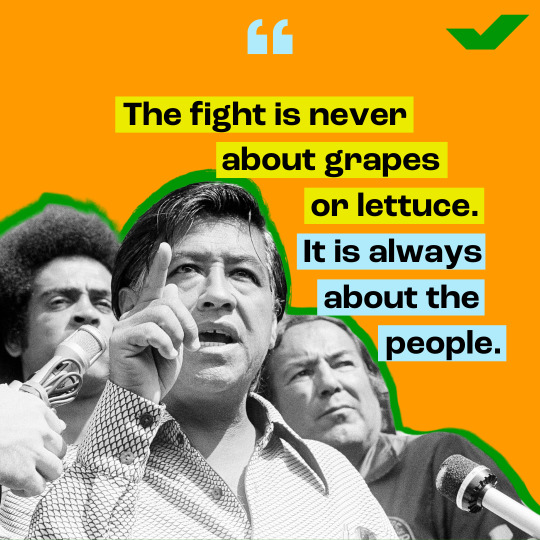
Today, we celebrate the life and legacy of labor rights activist César Chávez.
For more than 30 years, Chavez led the first successful farm workers union in American history. He inspired generations of people from all backgrounds and industries to organize, bargain, and expand opportunities for working people.
20 notes
·
View notes
Text

¡Viva La Huelga! ¡Viva Los Campesinos!
Celebrating the life and work of Cesar Chavez, 2024.
#art#artists on tumblr#digital art#vintage#expiremental#design#ufw#cesar chavez#viva la huelga#viva los campesinos#popart#pop art#graphic design#expiremental music#poster art#poster design#vintage posters#united farm workers#si se puede#dolores huerta#philip vera cruz#united farm workers union#cesar chavez day#civil rights#us politics#politics#socialism#communism#leftism#late stage capitalism
4 notes
·
View notes
Text
I was able to spend my April first happily booping away because I had the day off in honor of Mexican-American labor leader Cesar Chavez. You can honor his legacy today by joining a union!
3 notes
·
View notes
Text
03/31/2024 is Easter 🐇🌎, World Backup Day 🌎, Eiffel Tower Day 🌎, Transgender Day of Visibility 🌎, Day of the Taco 🌮🇲🇽, National Bunsen Burner Day 🇺🇸, National Clams on the Half Shell Day 🇺🇸, National Tater Day 🥔🇺🇸, Cesar Chavez Day 🇺🇸

#easter#world backup day#eiffel tower day#transgender day of visibility#day of the taco#national bunsen burner day#national clams on the half shell day#national tater day#cesar chavez day
4 notes
·
View notes
Text
Civil Rights Poetry: A Long Road to Equality by Mark Tulin/The official pub for FACE
Civil Rights Poetry: A Long Road to Equality by Mark Tulin/The official pub for FACE. Celebrating Cesar Chavez Day.
This poem is about the late Cesar Chavez, a Mexican social activist for migrant workers who helped unionize farm workers and whose impact goes beyond his home state of California.
Photo by Mark Tulin.
Cesar Chavez Day is on March 31st. A state holiday in California as well as several other states.
A Long Road to Equality.
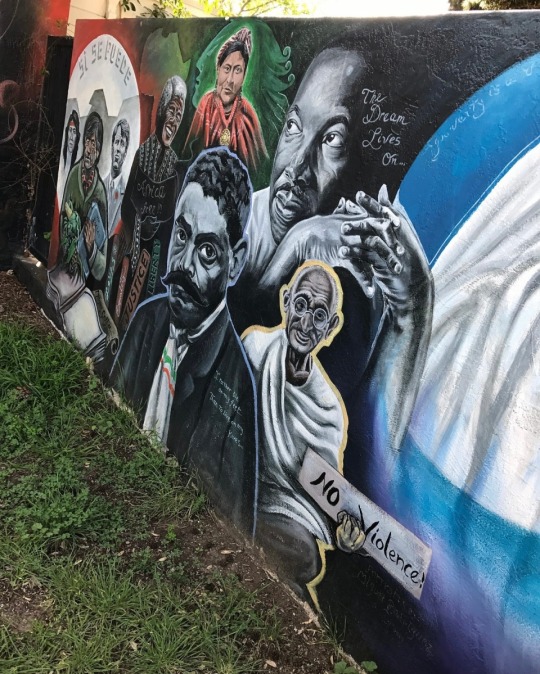
View On WordPress
2 notes
·
View notes
Text
Union Bargaining raises hourly wage from $7.25 to $20.00
#workers#unions#labor unions#labor rights#afscme#local1624#minimum wage#austintx#afscme1642#cesar chavez day of action#pro union#collective bargaining
4 notes
·
View notes
Text
having roommates is occasionally very funny bc one of them came out while i was literally abt to pour a whole ass mini-bottle of fireball into a mug of apple cider and so i had to casually spike my beverage while he asked me how my easter was going like. what is the appropriate answer while this is actively going down
#alli says shit#we are not supposed to drink but i know that man has kahlua in his room so he won't snitch#also very funny thing to do while talking abt how much of a party school we attend#like yes. real party ppl. staying in on cesar chavez day (the more important holiday bc we have it off)
0 notes
Text
wait hold on easter is on trans day of visibility this year 😭😭😭😭
enjmoy trans and easter posts on the same day i guess??
0 notes
Text
and happy trans day of visibility to cesar chavez and the san diego court system ig
#NOT me getting hung up on bc the san diego courts are on holiday#like WHAT HOLIDAY? TRANS DAY OF VISIBILITY?#.....cesar chavez day.#vans.txt
0 notes
Text
The calendar at my job (it's a fancy desk one someone bought, for context) literally just says "Holi. begins at sunset" on the 7th and like. Okay fine don't say which holiday whatever even though it clearly labels Ramadan, fine. I'm more preoccupied by the fact that the holiday does not, in fact, begin on the sunset of the 7th, but the 6th. Purim starts on the 6th this year. Your job is to make calendars you couldn't look this up??
#teddy talks#its even funnier bc cesar chavez day is clearly labelled#but purim? nah#no name and also wrong day#now maybe im wrong maybe it means another holiday but its not labelled?#maybe it means national cereal day lol#anyways. casual antisemitism coming in hot from a bougie blue sky brand desk calendar
1 note
·
View note
Text
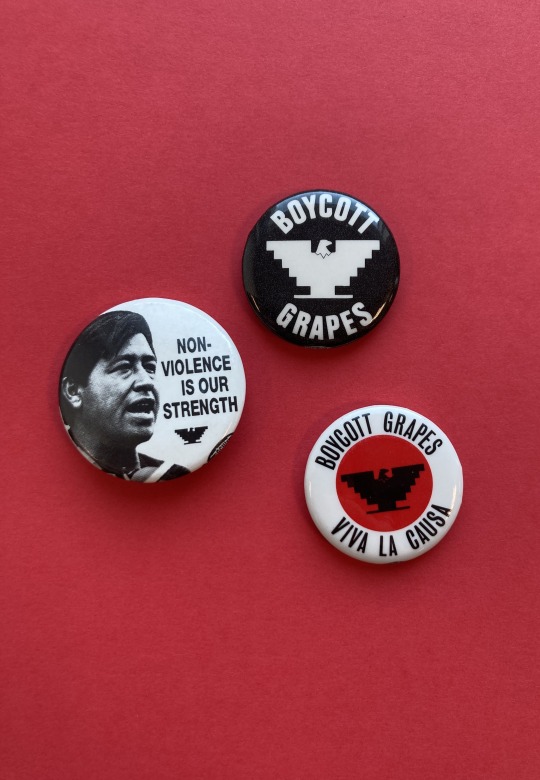
The CA State Library is closed tomorrow in honor of Cesar Chavez Day. A civil rights icon and labor leader, Chavez co-founded the National Farm Workers Association with Dolores Huerta. The rallying cry, "Sí se puede," inspired change, leading workers, who wore buttons like the ones below, in the grape strike to secure higher wages, health plans, and safety measures. #CesarChavez
95 notes
·
View notes
Text
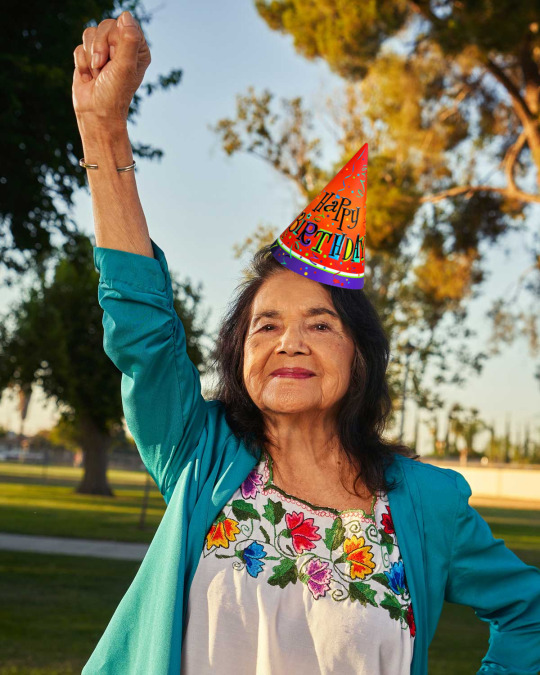
Happy birthday, Dolores Huerta! (April 10, 1930)
A cofounder and longtime leader, alongside Cesar Chavez, of the United Farm Workers union, Dolores Huerta was born in Dawson, New Mexico to a Mexican immigrant family. Her father was involved in labor organizing efforts and later served in the New Mexico legislature, but Huerta was primarily raised by her mother in Stockton, California. Huerta became an activist from a young age, and helped to organize the Stockton chapter of the Community Service Organization. Huerta also became active in labor organization, and became acquainted with Chavez through their shared efforts to improve the conditions faced by farm workers. Huerta's organizational skills were instrumental in the UFW's early growth, and she played an important role in coordinating the UFW's national boycott during the Delano grape strike. A feminist, Huerta has also been active in efforts for women's rights as well as the rights of LGBT people, emphasizing intersectionality in struggle. Her birthday is a statewide holiday in California.
“Every single day we sit down to eat, breakfast, lunch, and dinner, and at our table we have food that was planted, picked, or harvested by a farm worker. Why is it that the people who do the most sacred work in our nation are the most oppressed, the most exploited?”
333 notes
·
View notes
Text
Fifty years ago, 15-year-old Sonia Yaco ran for the school board in Ann Arbor, Michigan, one of the youngest people in the country ever to run for a seat on the Board of Education. A member of a group called Youth Liberation, whose platform was founded in 1970, she believed schools would be best run by the people required to be inside them for about seven hours a day, 180 days a year.
Youth Liberation developed a 15-point platform that was far-reaching in its vision. In addition to calling for an end to sexism, sexual discrimination, class antagonism, racism, colonialism, and what they called “adult chauvinism,” the group wanted to form communities outside the structure of the nuclear family, live in harmony with nature, abolish juvenile detention centers and mental institutions, establish global solidarity with youth all over the world, be free of economic dependence on adults, and have the right to their own “new culture,” which included everything “from music and marijuana to free clinics and food cooperatives.”
The 20 or so young people in the group, ranging in age from 12 to 16, wanted “a nationwide movement for youth civil rights, akin to the Black Liberation movement and the growing women's movement,” one of the founders, Keith Hefner, later wrote.
Backed by the radical socialist Human Rights Party, Yaco tells Teen Vogue she delivered stump speeches in a hand-sewn, black ruffled skirt and a black leather jacket. At the time, Ann Arbor, birthplace of the Students for a Democratic Society, was a political hotbed. Youth-led organizations had helped rally support for the 26th Amendment, which was ratified in 1971, lowering the voting age from 21 to 18. With popular books like Children’s Liberation (1973), Escape from Childhood (1974), and The Children’s Rights Movement: Overcoming the Oppression of Young People (1977), the idea of youth liberation was gaining force. Youth Liberation of Ann Arbor distributed their message through an underground newspaper, which was a collection of news items, how-tos, and stories from youth all over the country.
Yaco informed her parents that, given her political commitments, having a curfew wasn’t going to work, though she did still do the dishes. She talked to PTA forums and rock concerts of thousands, all with the message of youth empowerment. Each time she arrived to speak, she remembers, there was the question of whether or not she would be allowed on stage. She tells Teen Vogue that a school board member once told her to “shut [her] fat lip.” At another event, she says she encountered labor and civil rights activist Cesar Chavez, who told her, “I’ve been hearing about you.” The resistance against her candidacy was so great that the Board of Education prohibited Yaco from running, instigating a Supreme Court case which she ultimately lost. Still, with 1,363 votes, Yaco says she got the highest number of write-in votes ever received.
When we think of ageism, it commonly refers to older adults, not the other way around. Though many don’t tend to think of young people as oppressed, a recent study published in the Children and Youth Services Review argues that young people are, in many ways, similarly vulnerable to exploitation. Though young people under 18 can be tried in adult court, they are generally not allowed to vote or hold federal office. They are surveilled and policed in schools, medicated and institutionalized without consent, and paid less for their work. In some states, they cannot get vaccinated without parental permission. Many of these issues are particularly acute for youth of color — some as young as preschoolers — whom research has shown are viewed as older and not as “innocent” as their white counterparts.
“You're actively teaching children how to deal with an active shooter, but you can't let them have a say in budgeting, you can't let them discuss curriculum,” says Yaco. While rhetoric about the need to “save the children” is rampant, much public policy in the United States — from the struggling childcare system to gun violence in schools — reveals otherwise. The U.S. is the only country in the United Nations that hasn't ratified the Convention on the Rights of the Child, a historic human rights treaty.
The same justifications historically used to deny other groups their basic freedoms are still applied to youth, explains scholar Mich Ciurria. “The popular narrative about children — as spoiled, ungrateful, and mentally ill — mirrors the popular narratives about 1960s housewives, Black working mothers, and disabled people,” she wrote in a recent essay. To be “childish,” after all, is a derogatory term.
As psychologist Robert Epstein argues in an article for Scientific American, what is commonly chalked up to an innate “irresponsibility” or “laziness” — the idea of the unformed teen brain — may simply be a response to living under the repressions of modern society. A 1991 study reviewing research on young people in 186 preindustrial societies — more than half of which had no word for “adolescence” — revealed little evidence of the kind of antisocial teen behavior found in the West, according to Epstein’s summary. In his research for the piece, Epstein found that, based on surveys he conducted, “teens in the U.S. are subjected to more than 10 times as many restrictions as are mainstream adults, twice as many restrictions as active-duty U.S. Marines, and even twice as many restrictions as incarcerated felons.”
Young people have long been at the forefront of liberation struggles. Youth played a big part in the Civil Rights movement, which would inspire other movements that followed. In 1955, nine months before Rosa Parks became famous for refusing to give up her seat on a Montgomery, Alabama bus, a 15-year-old named Claudette Colvin was arrested for the same action. Galvanized by the Civil Rights movement, the National Indian Youth Council, formed by a group of young people in 1961, organized “fish-ins'' in support of land-use rights. The 1963 Birmingham Children’s Crusade saw more than a thousand young people, some as young as seven, attacked and jailed after taking to the streets in peaceful protest. In 1972, the Gay International Youth Society of George Washington High School, a group of students of color in the Manhattan neighborhood of Washington Heights, formed one of the first gay-straight alliances on the basis of student civil rights.
By 1979, Youth Liberation of Ann Arbor had disbanded, and the idea of youth liberation gradually faded from popular consciousness, but activists today are still organizing around age as one form of discrimination in a larger system of interlocking oppressions.
For Margin Zheng, the former president of the National Youth Rights Association (NYRA), a group founded in 1998, youth liberation is deeply intersectional. “Young people are BIPOC, young people are queer, young people are of various genders and of no gender, young people are disabled, young people are poor, young people are immigrants and migrants — just like older people,” they write as part of their principles of anti-ageism.
Zheng, the child of conservative Chinese immigrants, felt constrained both by their family life and their experience in school. “I secretly longed to be homeschooled and have the freedom to do my own thing, but my parents did not believe in nontraditional education,” they tell Teen Vogue. They attended their first school board meeting in ninth grade and soon began to question why students didn’t have more of a voice. “People think that they can make sweeping generalizations about people of a certain age, but you can’t generalize about youth just as you can’t generalize about people of a certain race, gender, etc.,” they say.
Ashawn Dabney-Small, who ran for Boston City Council as an 18-year-old and former vice president of NYRA, became involved in youth activism to address the issues that affected him. “It's not about advocating, it's about speaking from your experiences,” says Dabney-Small, who has experience with the foster care system and the effects of poverty. “That's why I got involved in certain issues, policies that revolve around my life because it's literally my life.” As an activist, Dabney-Small worked on campaigns against gun violence. Recently, he advocated for Congresswoman Ayanna Pressley’s bill to lower the federal voting age to 16 — a move that could revolutionize American politics.
“Schools and families are the places where we (young people) begin to feel that we have to struggle for our freedom,” Youth Liberation Acnn Arbor wrote in 1972. (One of the indirect results of Yaco’s campaign was the founding of the alternative Community High School that same year.)
Indeed, many activists today — in movements from unschooling to family abolition — see the institutions of school and family as structures that should be radically reimagined. From Indian Boarding Schools to the school-to-prison pipeline, unpaid domestic labor to assaults on queer chosen families, critics say schools and certain family structures have long been used as tools of oppression for women, queer people, and people of color.
In a utopian world, Zheng says, people wouldn’t be judged and set apart by age. Instead, they envision more intergenerational spaces where younger and older people — of all races, genders, sexualities, and abilities — can learn and grow together. “Just as young people would be empowered to cultivate and apply their strengths to work they find meaningful, older people would be embraced in their own personal growth, knowing that learning and unlearning are processes that happen all throughout the lifespan,” they say. Each person would be recognized for their own unique potential.
The vision is not unlike the original platform outlined by Youth Liberation more than 50 years ago. As Zheng says, “There would be no prisons, no police, and no schools, only communities of lifelong learning, caring, and joy.”
#undescribed#resources#youth liberation#history#black liberation#bipoc#michigan#socialism#abolition#education#civil rights#anti racism#family#autonomy#queer#trans#intersectional feminism#signal boost#reaux speaks
51 notes
·
View notes
Text
03/31/2023 is World Backup Day 💽🌏, Eiffel Tower Day 🗼🌏, Transgender Day of Visibility 🏳️🌈🌏, Day of the Taco 🌮🇲🇽, National Bunsen Burner Day 🔥🇺🇲, National Clams on the Half Shell Day 🇺🇲, National Tater Day 🥔🇺🇲, Cesar Chavez Day 🇺🇲, Wear a Hat Day 🎩🇬🇧
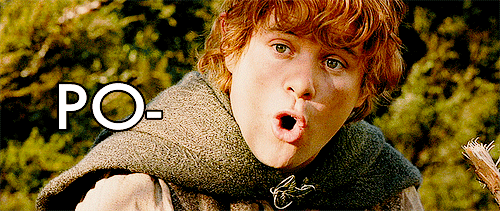
#world backup day#eiffel tower day#transgender day of visibility#day of the taco#national bunsen burner day#national clams on the half shell day#national tater day#cesar chavez day#wear a hat day
0 notes
Text
Democratic PR:
Democratic policy:
They argue the deadly fire should never have happened and are placing at least some of the blame on the Biden administration and its expansion of the policy, known as Title 42.
Its use forces the migrants into dangerous, overcrowded conditions in Mexico, they say.
"Exploiting a human tragedy to illustrate the 'risks' of irregular migration ignores the fact that the Guatemalan victims of this fire had no viable legal pathways and the Venezuelan victims were detained as a result of the Biden Admin's expansion of Title 42," Andrea Flores, a former member of Biden's National Security Council who handled border policy said via Twitter.
The Trump-era policy gives border agents the power to turn away migrants without legal process. It's set to end on May 11 when the administration allows the public health emergency for Covid 19 — that is the basis for Title 42 — expires.
How's the meme go? Men can't trust women cuz of makeup and women can't trust men cuz of assault. Well, BIPOC can't trust a single political party in the US government because of systematic abuses.
#this is why i dont look at the news#its always democrats making themselves look good and its always because they finished hiding a body#biden#systematic racism#systematic oppression#abolish ice#acab#kids in cages are still in cages
113 notes
·
View notes